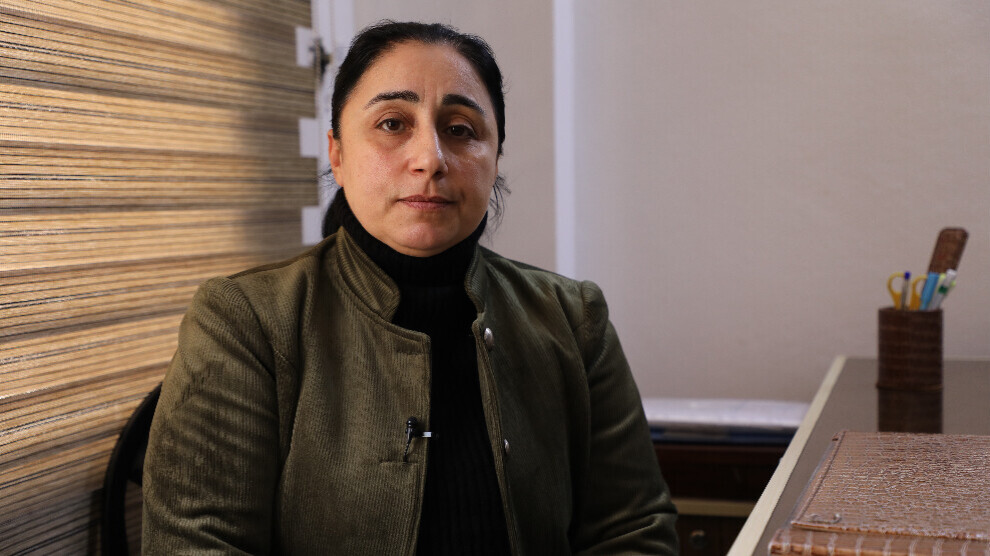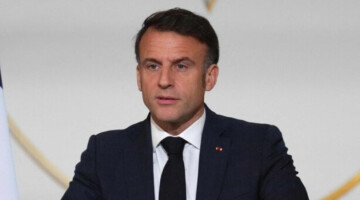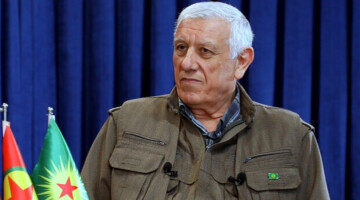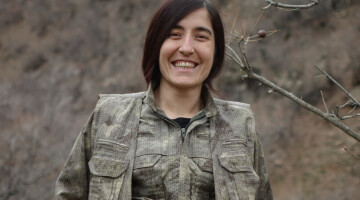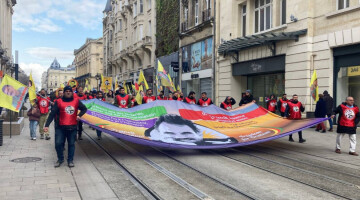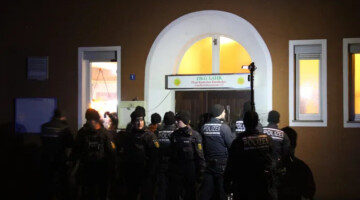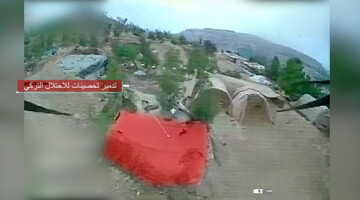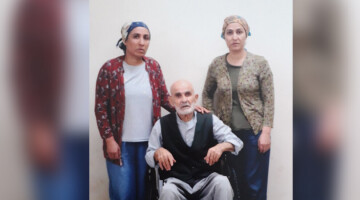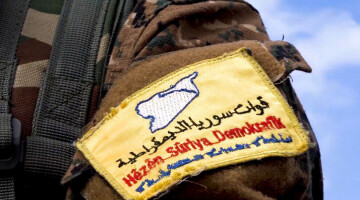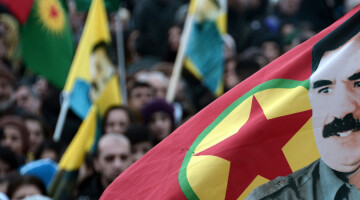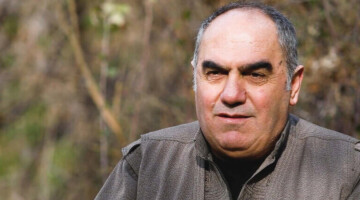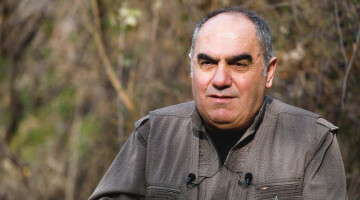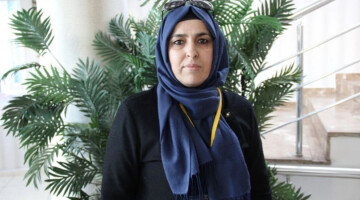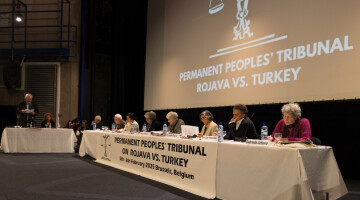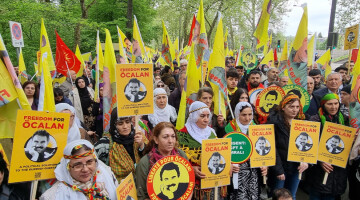Abdullah Öcalan continues to be kept in isolation in Imrali Island Prison. On its 26th anniversary, lawyer Aynur Paşa, spoke to ANF about the purpose of the international conspiracy, the ongoing isolation, and the obstruction of family and lawyer visits.
The 15 February international conspiracy was led by international states with Turkey assuming the role of jailer. What was the purpose of this conspiracy? How should we address the legal and political consequences of the conspiracy? If you look at the developments of that period from a legal perspective, how do you assess this situation?
International powers carried out this conspiracy to violate human rights and silence those who advocate for freedom and democracy. The international conspiracy began with Mr. Öcalan's departure from Syria. Not wanting Syria's security to face threats, Mr. Öcalan was forced to leave. In 1999, Mr. Öcalan was handed over to Turkey from Kenya. He was the target of a conspiracy initiated by international powers under the pretext that he was "wanted in Turkey." Although the then-prime minister of Turkey was surprised by Mr. Öcalan's handover, they did not hesitate to assume the role of jailer. Mr. Öcalan's capture was presented as a great success for Turkey, but the then-prime minister was surprised. Laws against Mr. Öcalan had already been prepared. He was brought to a show trial, so to speak, as a formality to "fulfill the procedure." As a result of this trial, Mr. Öcalan was sentenced to death.
Protocol No. 6 of the European Convention on Human Rights, which abolishes the death penalty, was ratified on 15 January 2003, and Turkey signed this protocol in 2005. Consequently, Turkey was forced to change its criminal laws and abolish the death penalty. Having abolished the death penalty, Turkey has held Mr. Öcalan hostage on Imrali Island for 26 years with an aggravated life sentence, which is no less severe than the death penalty. As is known, Imrali Prison is an island surrounded by water on all sides, one of Turkey's worst prisons, and the weather conditions severely affect health.
As we enter the 27th year of the international conspiracy, Öcalan remains on isolation in Imrali Island. In his latest meetings with Ömer Öcalan and the DEM Party delegation, Öcalan stated that isolation continues. The role of the CPT (European Committee for the Prevention of Torture), which has conducted inspections on Imrali Island for years while remaining silent, is evident in the continuation of this isolation system. How do you assess this ongoing isolation system?
It is well known that peoples who love freedom and democracy are deeply connected to and believe in Mr. Öcalan. The isolation prevents Mr. Öcalan's voice from reaching the people. Since 2011, Mr. Öcalan has been unable to meet with his lawyers, and prior to recent developments, there had been no news from him for over three years. According to the law, a detainee has the right to receive information from the outside and communicate with the outside world. This can be through television, radio, books, or other means of communication, or through contact with individuals. They also have the right to periodic family visits and phone calls. Additionally, it is a detainee's most basic right to communicate with their lawyer. Mr. Öcalan has none of these rights. If international laws had any validity, if there were any international will, Turkey would have been held accountable by now, decisions would have been made regarding Turkey, the existing isolation would have been lifted, and Mr. Öcalan would have regained his physical freedom.
The CPT, or the European Committee for the Prevention of Torture, is an organ of the Council of Europe. Established in 1989, the CPT's main purpose is to prevent human rights violations and torture in detention centers across Europe. It regularly visits prisons in member states. These visits are conducted to assess how the human rights of detainees are protected. Following these visits, the Committee prepares reports and submits them to the relevant states. During the visits, it makes recommendations to member states regarding the issues it identifies. These recommendations aim to improve conditions and prevent human rights violations. Although the CPT has submitted the results of its visits to Turkey several times, it has not been able to take a serious stance against Turkey. However, we consider it significant that in 2024, the Council of Europe's Committee of Ministers gave Turkey a one-year deadline regarding Mr. Öcalan. It is also crucial to follow up on the decision and the given deadline.
Why has Öcalan been unable to meet with his lawyers for 14 years since July 2011? Despite the fact that regular lawyer visits are a fundamental right for any prisoner to make their voice heard in society, the Turkish state has been violating this right for years. The official applications made by lawyers are often left unanswered by the Turkish Ministry of Justice and the AKP administration, and at times, these meetings are denied with false justifications. As a legal expert, how do you evaluate the legal framework governing the relationship between prisoners and their lawyers?
Although the rule of law is considered a fundamental principle in Turkey, we observe inconsistencies in its implementation. Political prisoners and high-profile individuals are the most striking examples of this situation. The case of Mr. Öcalan is frequently discussed in this context. While the rule of law requires fair and equal judicial processes, serious issues arise in its application. Prisoners in Turkey are entitled to certain rights under international law, including access to their lawyers. However, in the case of Mr. Öcalan, significant obstacles have been placed on the exercise of these rights.
For any prisoner, regular meetings with their lawyers are a crucial aspect of safeguarding their right to defense. Effective legal representation requires uninterrupted communication. Unfortunately, cutting off prisoners' access to their lawyers constitutes a violation of fundamental legal principles.
Moreover, lawyers have the right to be informed about disciplinary penalties imposed on their clients. The lack of this information flow undermines the fairness and transparency of the judicial process. Lawyers must be able to prepare necessary legal documents to defend their clients' rights and file appeals. However, in this case, lawyers are not adequately informed or allowed to meet with their client. This situation can be considered a systematic form of isolation.
For years, arbitrary disciplinary punishments have been imposed on Öcalan in Imrali to prevent his retrial. It is well known that accumulating these penalties into a file serves as a means to block any possibility of a retrial. Despite the European Court of Human Rights (ECHR) ruling on the "right to hope," Öcalan continues to be held in Imrali. How do you evaluate this situation? What is your legal assessment of his 26-year-long detention?
Mr. Öcalan represents the will of peoples advocating for freedom and democracy. In this context, the isolation imposed on Mr. Öcalan is also an isolation imposed on peoples. According to evolving legal frameworks in different states, a prisoner sentenced to life imprisonment has the right to a retrial and the right to benefit from the "right to hope." The decision to revoke his death sentence and convert it into aggravated life imprisonment does not justify the continued extreme isolation. The severe isolation imposed for 26 years is a clear indication of how Mr. Öcalan’s rights have been systematically violated.
In the Turkish legal system, prisoners serving life sentences have the right to be retried after a certain period. This right is also recognized under international legal standards and human rights treaties. Mr. Öcalan’s case raises serious questions about how effectively this principle is being implemented. The revision of a sentence is a dynamic process that reflects the evolution of the legal system. In other words, convicted individuals have the right to seek retrial and exercise their right to hope within the framework of changing legal norms.
The continued imposition of harsh isolation for 26 years is a blatant violation of Mr. Öcalan’s fundamental human and legal rights. This prolonged isolation contradicts human rights principles, international legal norms, the European Convention on Human Rights (ECHR), and the Universal Declaration of Human Rights. These violations include restrictions on physical integrity, access to healthcare services, and the right to legal counsel.
Following MHP leader Devlet Bahçeli’s statement, ‘Let Öcalan come and speak in Parliament,’ his nephew Ömer Öcalan was the first to visit Imrali. Later, after nine years, a delegation from the DEM Party also visited Imrali twice. How do you interpret these visits? What could be their impact on the political process?
The ongoing crisis in the Middle East and efforts to redraw the regional map have placed Turkey in a critical position. Devlet Bahçeli’s statement can be linked to this broader context. However, those making such demands must understand that imposing conditions and negotiating rights is legally unacceptable. According to the law, Mr. Öcalan has already reached the stage where he should benefit from the "right to hope." The Turkish state itself is the one postponing and trying to remove this right from the agenda. Therefore, setting conditions and engaging in negotiations over fundamental rights is, by definition, unlawful.
However, the main reason this issue has reached such a level is the global resonance of the "Global Freedom Initiative" launched under the slogan "Freedom for Abdullah Öcalan, a Political Solution to the Kurdish Question." The struggle of the Kurdish people and their allies has brought about this moment. When considering that isolation has not yet been lifted, these visits appear to be a result of increasing pressure on Turkey.
We must also remember that Turkey, facing political, social, and economic deadlocks, has once again turned its focus toward the Kurdish people. A historical analysis of Turkey reveals that the country has experienced its most significant achievements during periods of Kurdish-Turkish solidarity. The unity of Kurdish and Turkish peoples is key to overcoming crises. However, Turkey approaches this relationship not as a strategic partnership but as a tactical maneuver. In doing so, it pursues a policy of exploiting Kurdish sentiments for its own interests. Through statements like "We stand with the Kurdish people," Turkey attempts to navigate its way out of the existing crisis. It is crucial to recognize these self-serving political strategies.
The process is unfolding under Mr. Öcalan’s initiative. As seen in the seven-point proposal, Mr. Öcalan is ready for a solution. The democratization of Turkey and the construction of an equitable society depend on embracing his paradigm. According to rumors, Mr. Öcalan is expected to make a statement on February 15. Everyone is awaiting this announcement. So far, Turkey has not approached these developments in the desired manner, has not clarified its stance, and has not explicitly stated whether it intends to resolve the Kurdish issue. After this statement, its intentions will become clearer. A sincere approach to the current situation is essential. Mr. Öcalan has devoted all his efforts to peace, democracy, and equality. Our hope is for Mr. Öcalan’s release from Imrali and the attainment of his physical freedom.

